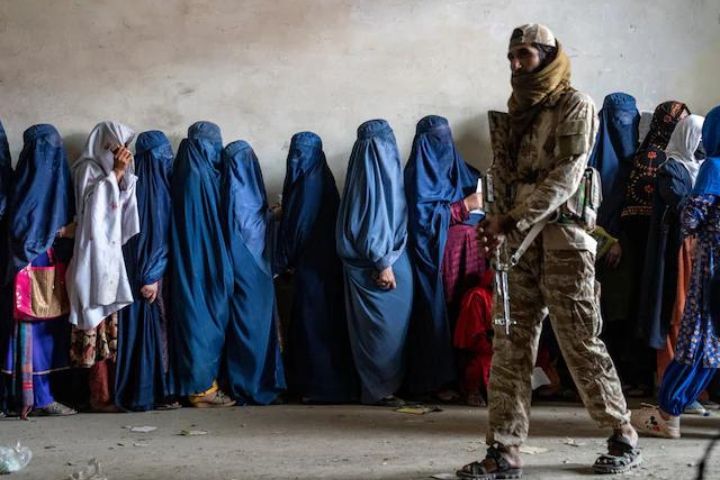Since the Taliban took over in 2021, 1.4 million Afghan girls have been denied secondary education. Primary school attendance is down by 1.1 million, and university enrollment has fallen by 53%. This crisis risks an entire generation’s future, potentially increasing child labour and early marriage.
Education Crisis In Taliban
UNESCO reports that since the Taliban took control in 2021, 1.4 million Afghan girls have been denied secondary education. Primary school attendance has dropped by 1.1 million, and university enrollment is down by 53%.
This dramatic decline threatens the future of an entire generation, potentially leading to more child labor and early marriages. The situation has reversed two decades of educational progress, leaving nearly 2.5 million girls without access to education. The international community is urged to push for the reopening of schools and universities for Afghan girls and women.
UNESCO Director-General Audrey Azoulay called on the world to keep pushing for schools and universities in Afghanistan to be reopened to girls and women.
“If we add the girls who were already out of school before the bans were introduced, there are now almost 2.5 million girls in the country deprived of their right to education, representing 80% of Afghan school-age girls,” the UNESCO said.
Taliban Takeover Afghanistan
On August 15, 2021, the Taliban captured Kabul, marking the end of the War in Afghanistan and a total victory for the Taliban. This led to the collapse of the Afghan government and the return of the Taliban’s Islamic Emirate of Afghanistan.
The rapid collapse followed the US-Taliban agreement signed on February 29, 2020, which included a US commitment to withdraw troops. This deal contributed to a significant reduction in US support for Afghan forces, which weakened their ability to resist the Taliban’s advance.
Despite earlier predictions that Kabul would hold out longer, the Taliban’s offensive, which began in May 2021, saw them quickly seize control of most Afghan provinces. The Afghan government collapsed much faster than anticipated, leading to a chaotic evacuation of over 123,000 people from Kabul between August 14 and 30, 2021.
The US and its allies conducted the largest non-combatant evacuation operation in military history to airlift diplomats, military personnel, and vulnerable Afghans. After the US withdrawal, a small number of people, including US citizens, remained stranded in Kabul.
In the weeks leading up to the Taliban’s capture of Kabul, the city faced significant fears among residents, especially women, who were concerned about the return of restrictive Taliban rule. The situation also led to a large-scale evacuation effort as people sought to flee the country amid deteriorating security.




GIPHY App Key not set. Please check settings